BIG SCREEN
Blazing saddles: ‘Flatland’ is fearless filmmaking from one of our own
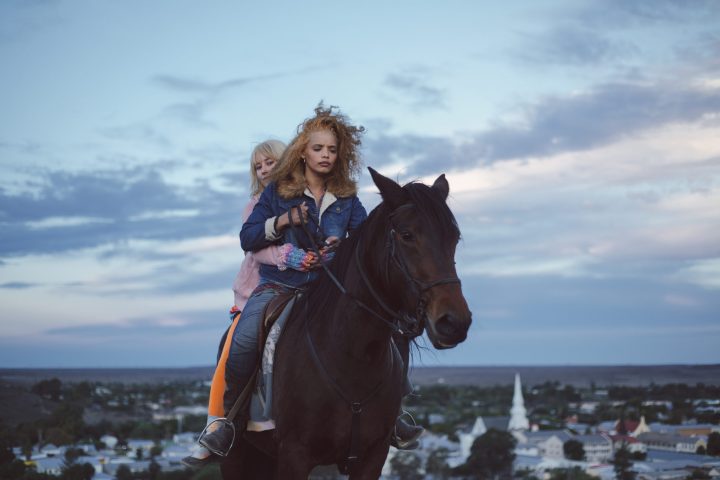
Almost two years since its overseas premiere, Flatland – Jenna Cato Bass’s third feature film – is finally coming to local cinemas. This unconventional feminist road movie plays out like a Western – set in the badlands of the Karoo.
There’s this rollicking scene in Flatland when its two protagonists find themselves on a horse tearing down the highway in the middle of nowhere.
They’re on the run, and – forced by circumstance to turn their backs on small-town life – hoping to reach the bright lights of Jo’burg.
Like the film itself, these women are on a wild ride through what might be the badlands of countless cowboy films.
Instead of the Wild West, though, we’re in the Karoo, and instead of John Wayne in the saddle, it’s Nicole Fortuin as a runaway bride, Natalie, and Izel Bezuidenhout as Poppie, her very pregnant bestie.
It’s an image that beautifully captures filmmaker Jenna Bass’s twisted take on the traditional Western.
And it’s a hint that, like these two young women, we’re in for one hell of a ride – one that’s more than a bit eccentric and heaps of fun to watch, too.

A wild ride through the Karoo in ‘Flatland’ © Gabriella Achadinha Photography
But are these two really in a Western, or is it a road movie? Maybe a chick flick? Could it perhaps be a detective thriller? Or possibly a revenge movie? Yes, it’s all of these things.
And there’s comedy too, plus a touch of romance and a hail of bullets, because that’s what you get in a Western – a big shootout at the end.
“If you look back at where Westerns come from, you realise that they’re colonial narratives typically about men going out and conquering the wilderness.”
It all starts innocently enough, though. In Beaufort West, of all places.
Natalie – a total innocent with a mix of naïve expectation and pending tragedy in her eyes – marries a cop named Bakkies (played by De Klerk Oelofse). He seems decent enough, until they’re alone and he turns out to be a weasel.
The bridal bedroom becomes a scene of sexual violence, prompting a swift shift of gears. To escape the sudden nightmare, Natalie grabs the weasel’s gun and steals off into the night, taking her beloved horse, but leaving behind one dead body.
Natalie interrupts her aimless, unplanned getaway to pick up best friend Poppie – knocked up and full of mischief – and together they strike out, Thelma and Louise style, except of course for that horse.
While these young women are fleeing an insular community, it’s pretty apparent that they’re also attempting to unshackle themselves from the misogynistic status quo. Their flight of freedom makes for a tale that’s quite unlike any South African film you’ve seen before.
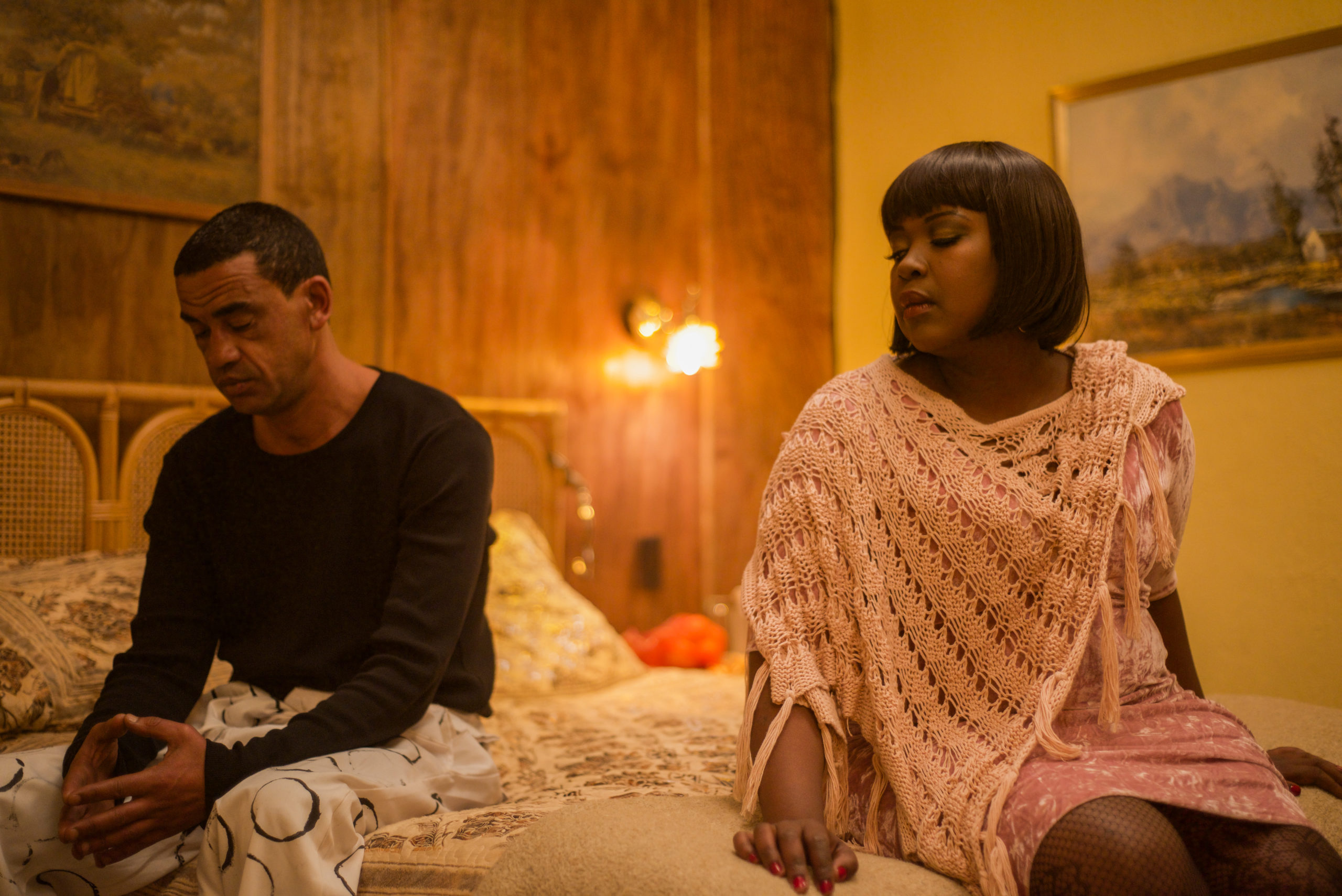
Brendon Daniels and Faith Baloyi in ‘Flatland’ © Proper Film, Gabriella Achadinha
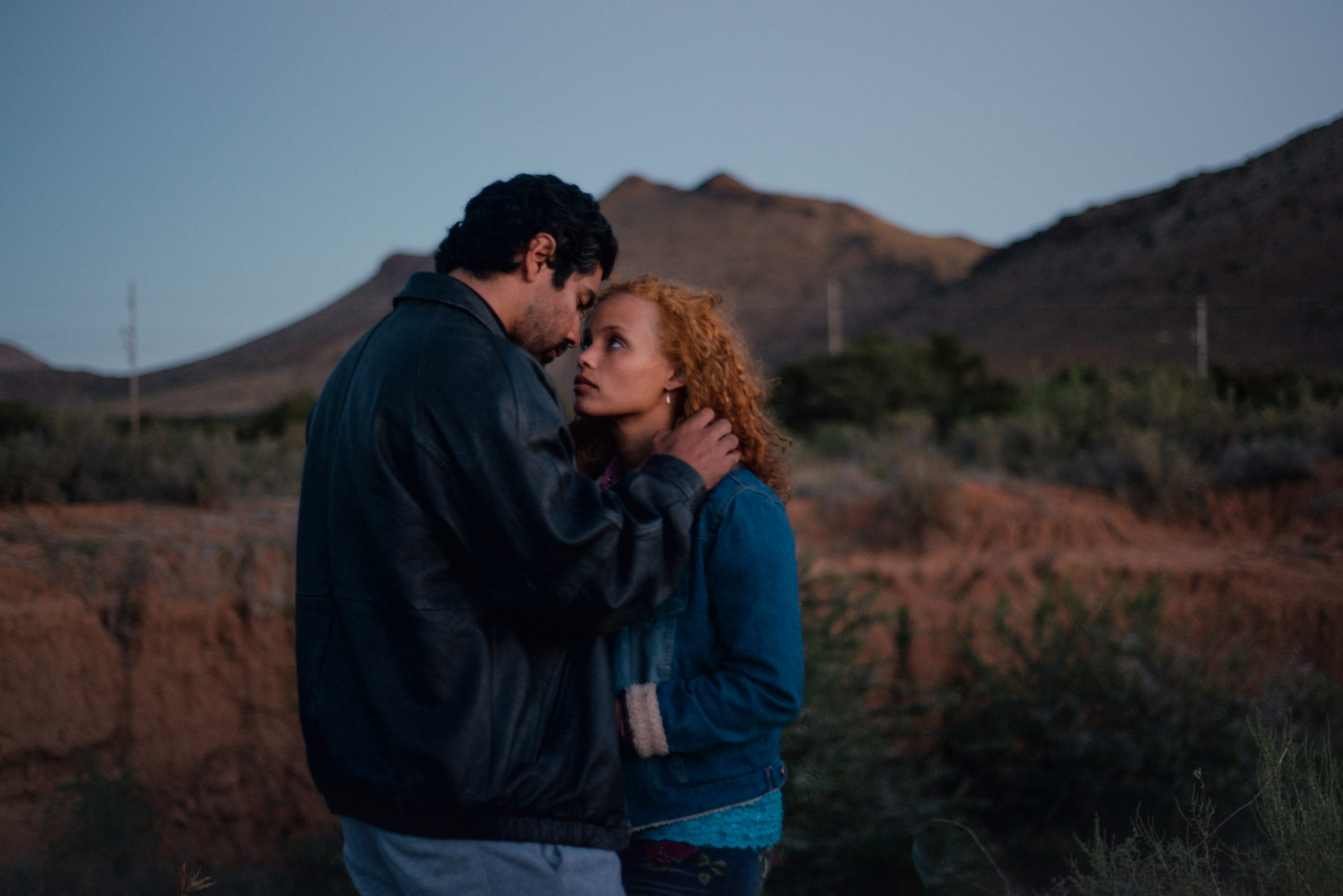
Men will be men in ‘Flatland’ © Proper Film, Gabriella Achadinha
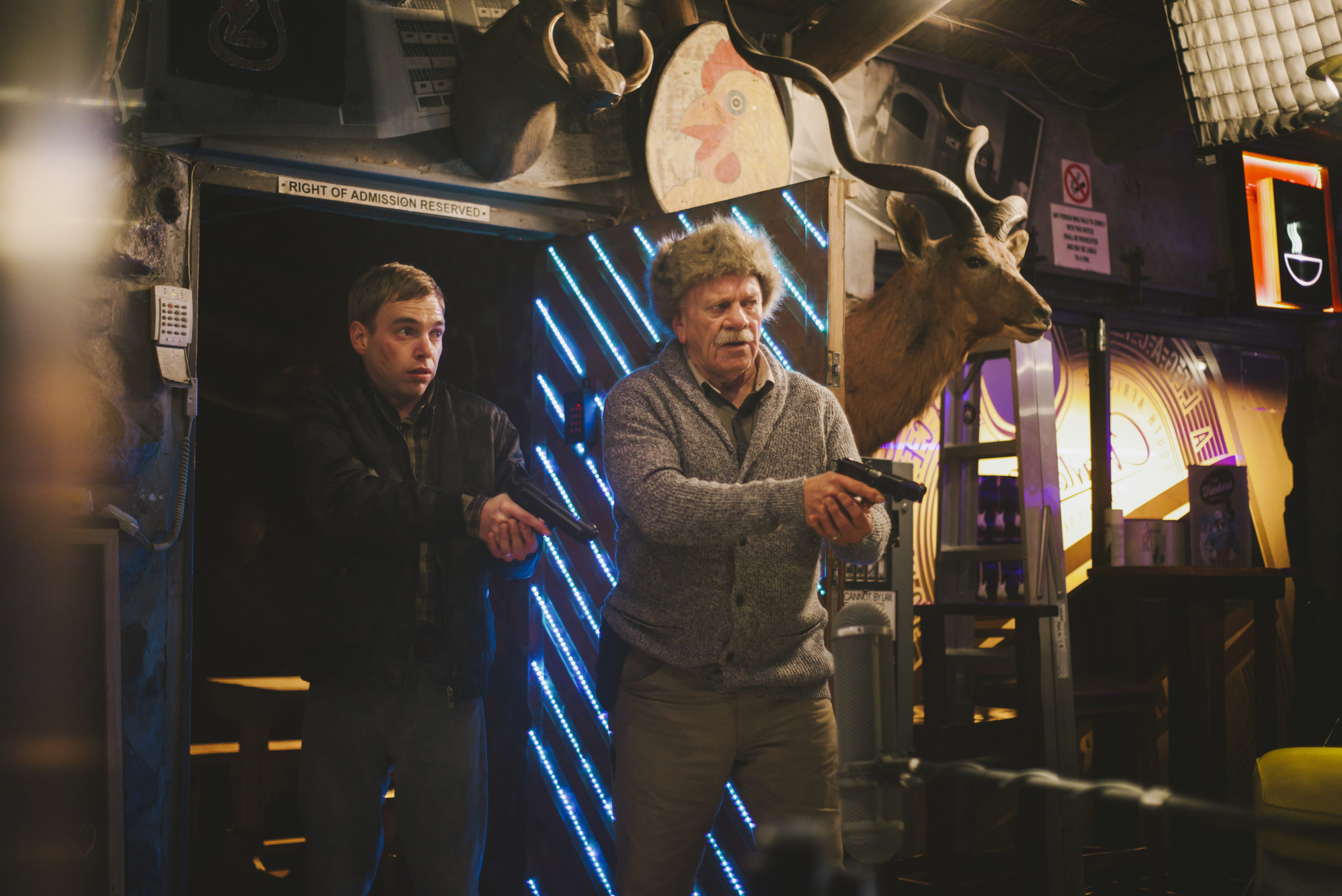
A wild shootout is inevitable in ‘Flatland’ © Proper Film, Gabriella Achadinha
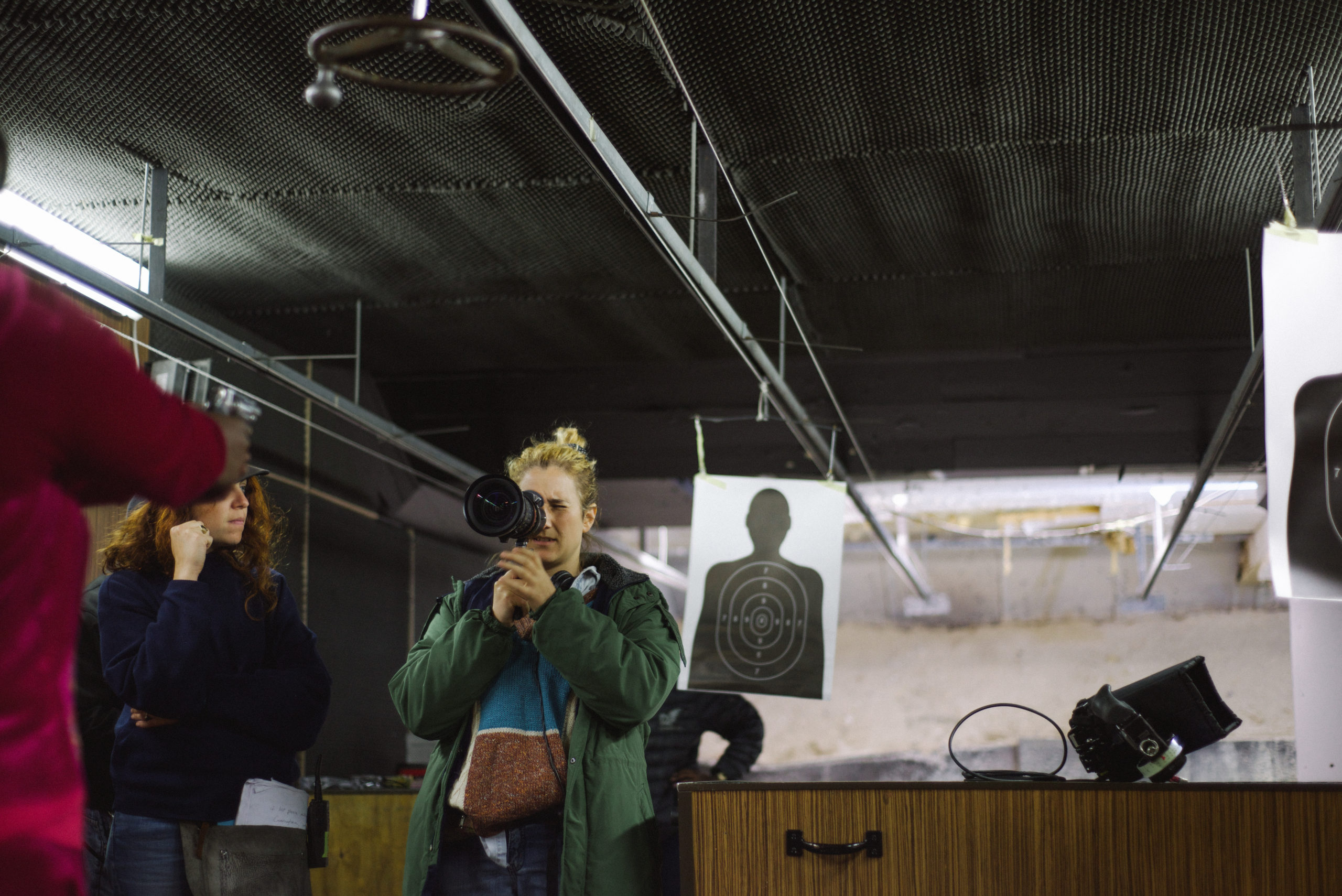
‘Flatland’ director Jenna Bass © Gabriella Achadinha Photography

‘Flatland’ behind the scenes © Gabriella Achadinha Photography
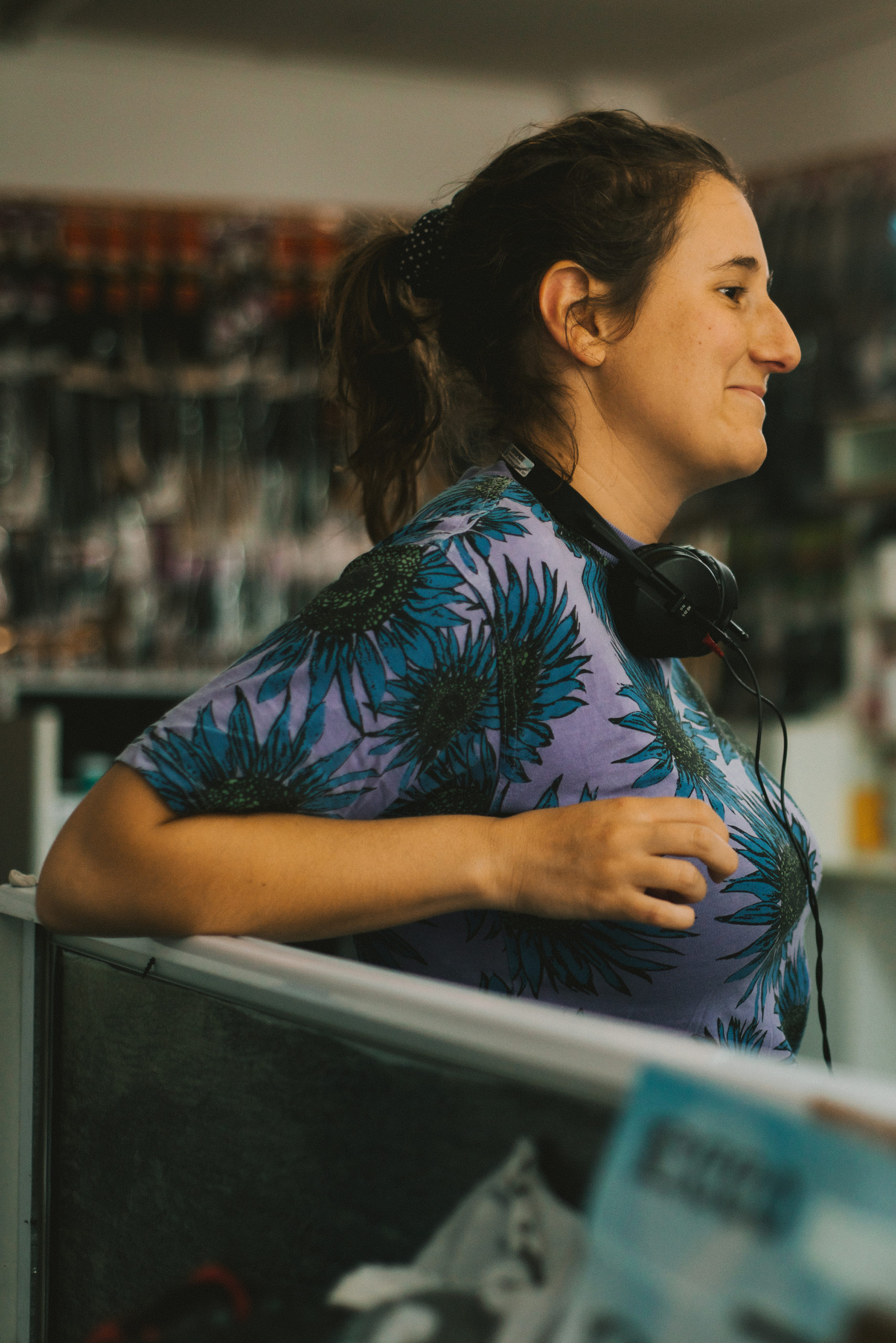
‘Flatland’ director, Jenna Bass © Gabriella Achadinha Photography
Not that Bass has ever been one for convention. Her unhinged, offbeat approach has stood out since cutting her teeth by developing a new workshopped narrative format with her first feature, Love the One You Love (2014), which drew wide critical acclaim. She shot her follow-up, a racially-charged body-swap comedy called High Fantasy (2017), using iPhones.
She doesn’t mind controversy, either. She shares writing credits on the 2018 coming-of-age lesbian romance, Rafiki, which was banned in Kenya, director Wanuri Kahiu’s home country. The film, which is available on Showmax, was selected for the Cannes Film Festival.
When Flatland had its South Africa premiere at 2019’s Silwerskerm Film Festival, Bass staged a protest against what she said was the festival’s sexist marketing campaign by refusing to attend her own screening.
Flatland took a long time to get made. Bass started the screenplay back in 2009 and over the ensuing years it evolved into a very different story; its initial plot revolved around some sort of apartheid nuclear bomb conspiracy.
Bass says the film was born simply out of her desire to make a “proper” Western.
“It started with the landscape. I just thought it would really cool to set a Western in the Karoo – I wanted to duplicate the genre in a local context.”
The more she delved into the genre, though, the more sceptical she became.
“Because, if you look back at where Westerns come from, you realise that they’re colonial narratives typically about men going out and conquering the wilderness.”
So, while it takes its cue from Hollywood cowboys flicks, it blurs genres, lapsing between the horse opera it sets out to be, a crime thriller and a girls-gone-wild road movie – ultimately, it’s kind of unlike any South African film we’ve ever seen, revolutionary in the way it weaves together all sorts of unexpected twists into an entertaining romp that manages to tackle serious issues.
And there’s a whole lot in it that might rub your typical wild-west, cowboy-movie fan up the wrong way.
Starting with all its main characters being women.
The film’s third female lead is a tenacious, sharp-shooting detective (played by Faith Baloyi) who has a fondness for velour tracksuits and soap operas. Detective Beauty Cuba (how’s that for a movie character name?) is hot on the heels of Natalie and Poppie, but has a few skeletons in her own closet. Most notably, there’s her ex-lover (played by Brandon Daniels) whose release from a 15-year jail stint coincides with Natalie’s wedding night debacle.
And so, with these parallel story threads unfolding, Flatland turns into a thrilling feminist romp, not only subverting traditionally macho, testosterone-driven narratives, but also showing us female characters determined to act on their own volition.
“When I started working on this film, I don’t even think I would have identified as being a feminist,” says Bass.
“I really didn’t think too much about gender and I was quite apolitical. Things changed quite a lot along the way – a lot of it was following instinct.
“Originally I said, ‘Oh, I want to make a western, so let me watch lots of westerns.’ And as I did, I realised that something was bothering me. I realised it was because of a lack of female characters. I began wondering how I could change the genre, not only by including women characters but by having them dominate the film.”
Aside from wanting to mess with expectations, Bass says her instinct to deal with gender came from personal experience.
“Some parts of the film were drawn from humiliations in my own life. Not necessarily because of what men did to me, but because of the things I did to myself in order to please those men.”
“Life is this really messy combination of tragedy and comedy and action and romance.”
And the men in the film really are the pits – while there is no John Wayne, there are plenty of bastards. Apart from Bakkies who is established early on as a snivelling weasel, there’s the truck-driver father of Poppie’s unborn child who is quickly revealed to be an unscrupulous womaniser – when he tries his luck with Natalie, mayhem follows.
And then there’s Beauty’s old flame whose true crime, it turns out, was to have underestimated what she’s capable of.
Ultimately, though, the film is about its women, and it’s gratifying to see such multidimensional, wholly unconventional characters in a film that is full of quirk and intricacy.
It includes such a barrage of elements in fact, that it sometimes feels unlikely that all the pieces will eventually come together.
“I can’t imagine making films that are just one tone the whole way through,” Bass says.
“Life is this really messy combination of tragedy and comedy and action and romance. Even the most ordinary domestic life has multiple shades and it frustrates me if I’m unable to capture all those emotional colours in a single film. It sometimes has the result that the film feels all over the place or gets pretty messy because it’s trying to do too much. But that’s really intentional for me. I can’t make them any other way.”
Messy is the way Bass likes her films to be – filled with the chaos, confusion and disorderliness of life.
“For me, an interesting film is one that takes you on a whole quest, up and down the emotional spectrum. There’s this feeling afterwards of having gone through a rollercoaster ride. And that feeling is exactly what I wanted to achieve with this film.”
At times you feel like you’re being pulled along with the characters as they chart a course through a troubled frontier, bump heads with shady blokes in saloons and at truck stops, collide with all sorts of strays and misfits and sneering, snarling men, and ultimately face off in a shootout finale where the film’s measured messiness is perhaps most evident.
“Because the characters are unconventional, I also wanted to reframe the big gunfight finale a bit,” explains Bass.
“So it’s this really weird shootout because nobody’s really trying to kill anyone. It’s inept and comedic and not meant to be a slick shooter – it’s a bunch of people who really don’t want to be in that situation in the first place.”
That shootout is unhinged and off the wall – a kind of comic opera after which you need to come up for air.
And then the dust settles, almost magically.
Bass believes there’s an afterglow you get from certain kinds of films.
“The films that inspired me to make films in the first place are the ones that altered the way I saw the world. When I left the cinema, everything was tinted by what I had seen on screen and what I felt while watching. Those films stayed with me and they had a lasting impact on me. That’s what I’m trying to achieve with my films. I want to take you on a joyride and leave you in a different place at the end.”
In other words, you’d better buckle up. Because the Flatland joyride is zany, unsanitized and anything but flat. DM/ ML
Flatland premiered internationally last February, when it was the opening film at the Panorama section of the prestigious Berlinale festival in Germany. Its local release – initially scheduled for April – was put on hold by the pandemic; it screens in local cinemas from 30 October. Rafiki, which Bass co-wrote, is available for streaming on Showmax.

















 Become an Insider
Become an Insider
Dunno so much about Blazing Saddles. Thelma and Louise on horseback, more like it.